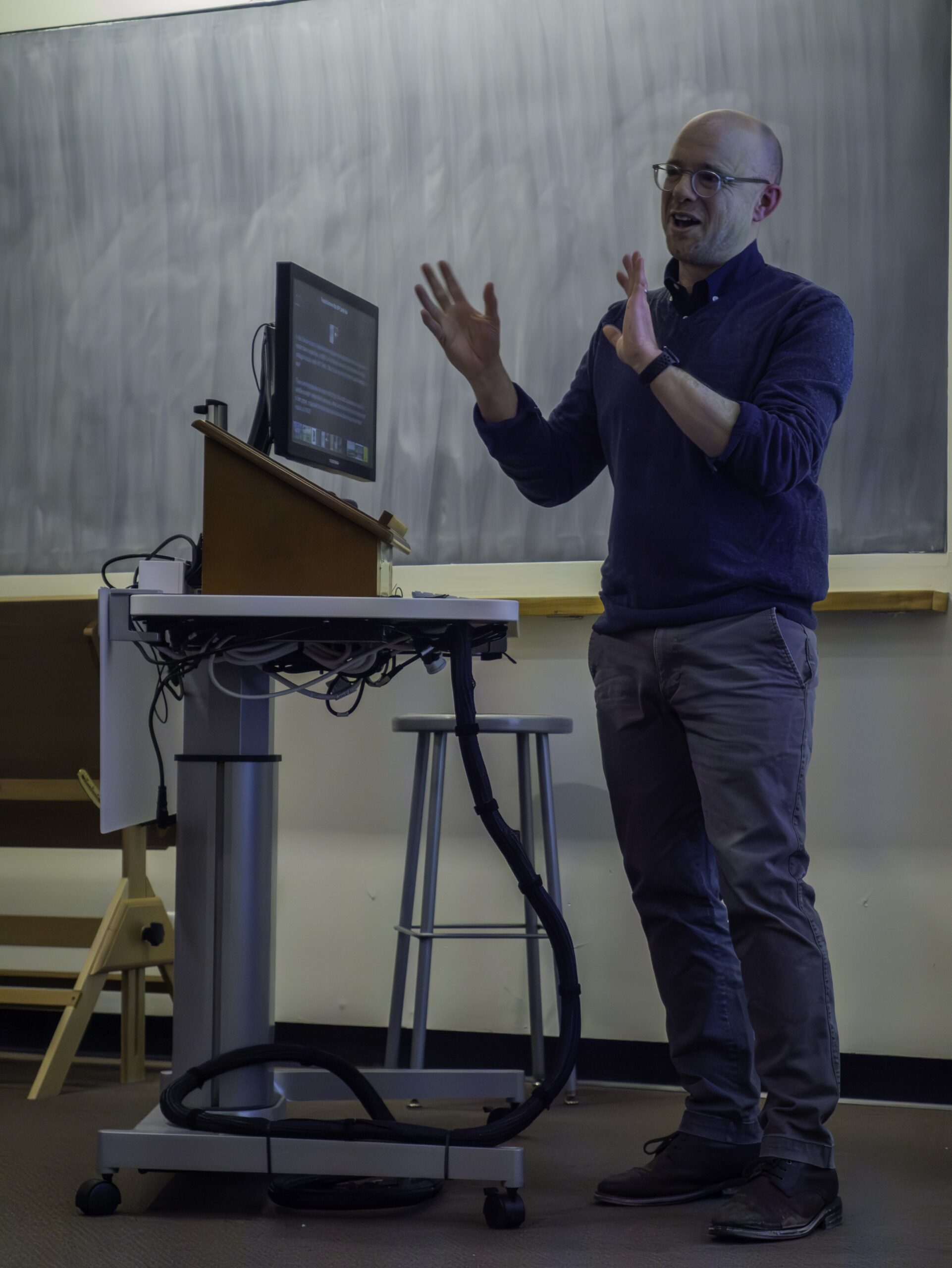Reed Johnson talks alternative WWII histories through the city of St. Petersburg
February 21, 2025
 Isa Cruz
Isa CruzOn Thursday night, Senior Lecturer in Russian, East European, and Eurasian Studies Reed Johnson spoke on the importance of the alternative history genre, discussing two novels that examine what the city of St. Petersburg might have looked like if Nazi Germany took over the Soviet Union after World War II. The talk was part of the “Global Languages, Literature and Culture on the Move” series, which aims to highlight the research interests and projects of faculty in those departments.
Johnson briefly introduced the audience to alternative history by discussing novels in the genre from both a U.S. and Soviet context, including “It Can’t Happen Here” by Sinclair Lewis and “The Plot Against America” by Philip Roth.
Johnson emphasized the value of alternative history in not only speculating on potential futures but also forcing readers to reckon with reality.
“I’m interested in these questions of ‘what if?’ I’m interested in them particularly as a way of representing not individual subjectivities but what I’m going to call subjunctivities, which is the way in which we think about ‘what if’ questions, and what they reveal about ourselves and about the world that we actually live in today,” Johnson said.
Johnson’s talk centered around two Russian novels: “The Sinologist” by Elena Chizhova and “Hitlergrad” by Kirill Lyats. Written in 2017 and 2020, respectively, neither novel has been translated into English yet. Johnson noted that they are very different in plot, audience, reach and literary quality. Chizhova’s work adds onto a previous body of well-known literary fiction work, while Lyats’ novel was initially published on Facebook during the pandemic and later excerpted by a prominent Russian periodical.
“They’re both about the Soviet period, but they’re both about an imaginary victory of Nazi Germany over the Soviet Union in World War II,” Johnson said. “Despite these differences, they both very provocatively imagine the very different outcomes of World War II.”
Johnson laid out the histories presented in Chizhova’s and Lyats’ novels and pointed out the role of St. Petersburg in each. St. Petersburg, formerly known as Leningrad, was built in imitation of the West, which is reflected in Soviet alternative histories.
“Petersburg has been a very rich site for alt-history … because of … the way that [it’s] been linked to this sort of alternate trajectory, this other possible future that Russia was striving for, particularly when it was integrated in the West,” Johnson said.
Johnson also said the role of St. Petersburg in literature centers around symbols of “shadows, mirrors … [and] doppelgangers.”
“Its conception as this sort of imitation, as a copy, has made it this very rich site to stage these encounters between East and West to frame questions around authenticity [and] fakeness,” Johnson said.
Alternative history requires engaging with both the real and the speculative simultaneously, which Johnson views as a tool for shaping the future.
“There’s a balance that’s these two different histories emerging in our minds as we read the actual and the imaginary,” Johnson said. “In this way, I think we can read alt-history not just as the palimpsest of imagined past and real past, but there’s a third layer as well, which is the backdrop of the present, not just what might have been and what was, but what is and what potentially could be.”
Johnson added that this genre is particularly compelling because it requires readers or viewers to think differently about how their past, present and future are influenced by chance events.
“I just find [alternative history] such a strange thing…. It seems to have a lot to say about not just the past or about the pasts, plural, but also the present and possible future,” Johnson said in an interview with the Orient. “When we’re forced to confront the role that chance might have played, then … by thinking otherwise we might become wise to otherness.”

Comments
Before submitting a comment, please review our comment policy. Some key points from the policy: